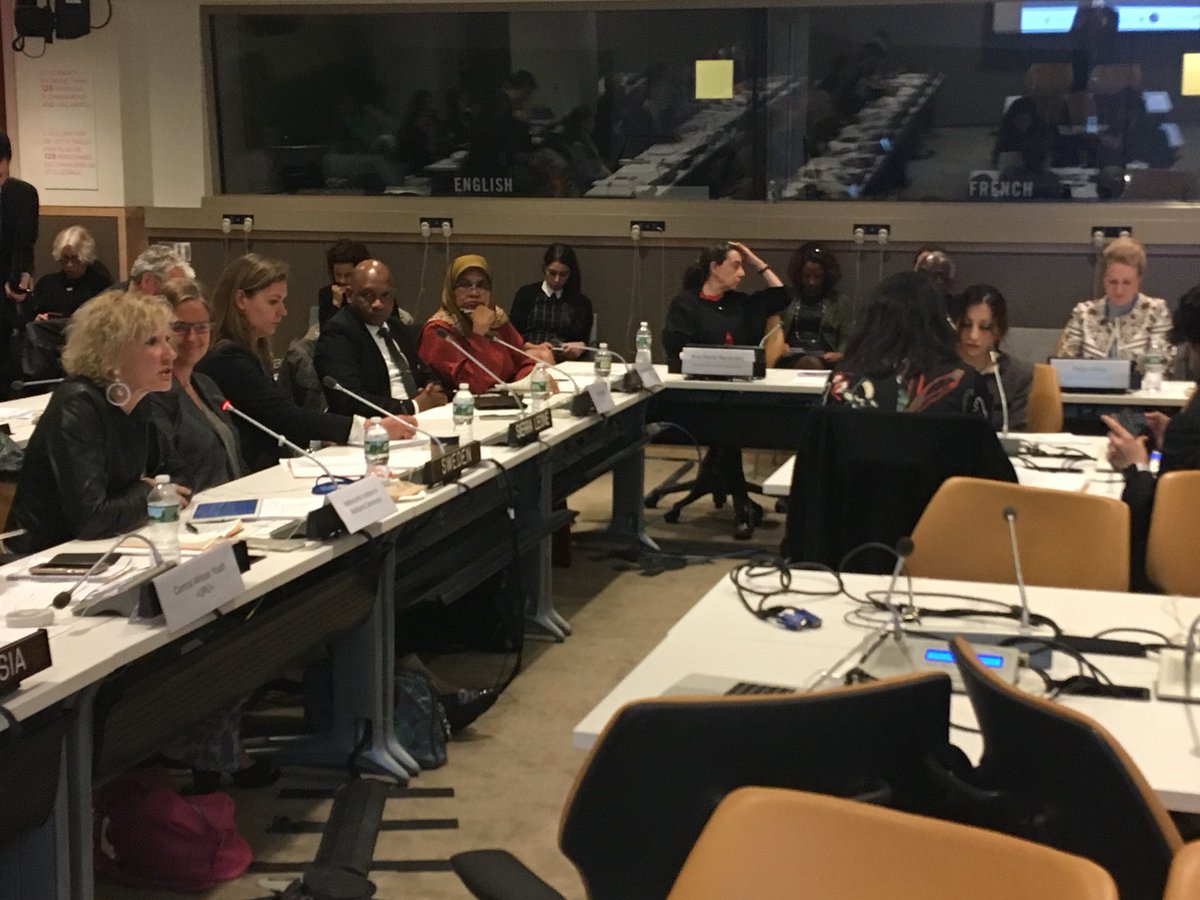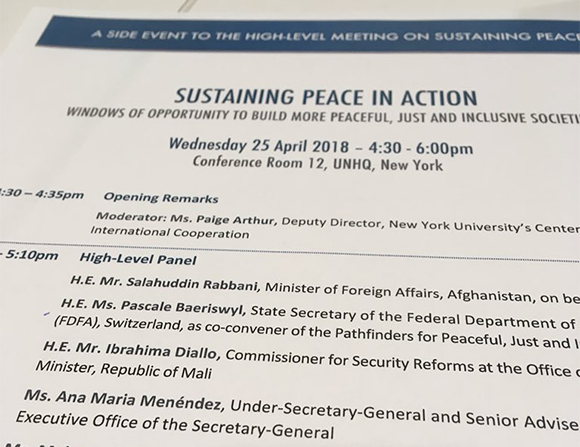
NIMD’s Director, Simone Filippini, reflects on what it will take to achieve sustainable development around the world, and her time at the UN High-Level Meeting on Peacebuilding and Sustaining Peace in New York and at a Global Leadership Foundation meeting in Bern, Switzerland
Why is the political dimension of sustainable development not explicitly tabled more often? The role politics play in the success or lack thereof of realizing Agenda 2030? Even at the highest political levels there appears to be a lack of willingness to openly discuss this dimension in multilateral settings. While citizens I speak with all over the world are very forthcoming in describing the obstacle politics often constitute in developing the enabling environment for all to flourish.
Take the High-Level Meeting on Peacebuilding and Sustaining Peace, which I attended in New York on 24-25 April. The good news is that the well-attended New York meeting showed that the importance of SDG 16 is being recognized more and more. It is now even presented by some – like the Pathfinders for Peaceful, Just and Inclusive societies, as a crosscutting SDG and renamed SDG16+.
SDG 16 was one of the most fiercely negotiated Global Goals in the UN, because it advocates for peaceful and inclusive societies, access to justice for all and accountable, inclusive institutions, all elements that are essential preconditions for any form of sustainable development. In many of the UN member states, however, SDG16 is still a far-fetched reality and a number of the world leaders that had to sign up for the SDG’s are responsible for conflict, instability, poverty and lack of socioeconomic progress in their countries. No wonder there was quite lack of enthusiasm for this specific SDG: accepting it was accepting responsibility for highly necessary transformation.
That’s why the increased recognition is an important step. And while speakers at the High Level meeting did highlight the need for strong institutions the discussions could have gone so much further. Most speeches and discussions did not tackle the heart of the issue, which is how non-inclusive, non-democratic non-performing politics are a big source of conflict in the world and a major cause of a substantial part of the disturbing conflicts and violence we witness.
This is all the more unfortunate as the political conditions for sustainable peace, stability and development are relatively straightforward. We have the models, we have the examples. Some criteria are technical, like effective budgeting, taxation and customs systems. Others have to do with political culture. Governments need to accept being held accountable by a parliament. Political parties must be empowered to translate the voices and concerns of people into the political arena and into political programmes. Civil society needs to able to play its countervailing role. The media need to be independent. The judiciary should be professional and independent. Corruption firmly and effectively tackled. Political parties should be programme-led instead of persons-led. Majority parties need to take care of marginalized and minority groups. We have to urgently get rid of the zero-sum politics in which the winner takes all and the intrinsic risk of inequality and dissatisfaction materializes into conflict.
If we really want to be successful these crucial conditions should form an integral part of the roadmap to achieving the 2030 Agenda for Sustainable Development.

Despite the many positive aspects, I think the UN High Level Meeting was at the same time a missed opportunity to really delve into what is needed politically to achieve the 2030 Development Agenda, and especially SDG 16. Apparently, the political dimension is considered too sensitive a topic. That is a shame, because many other stakeholders like cities, companies and civil society organizations can and want to contribute, but as we live in nation states, we need governments to set the rules of the game and create a functioning framework.
NIMD works with political parties and actors in different countries to help them to become responsive, effective and accountable so that they can build inclusive societies. Every day in our work, we see that change is possible. However, for this change to be effective, we need to stop beating around the bush and start addressing this issue head-on and in a sustained manner.
Maybe one solution lies in what I saw in Bern, Switzerland, a few days after the New York event. Here, I attended a meeting of the Global Leadership Foundation (GLF), a network of former Presidents, Prime Ministers and senior ministers who ‘want to give something back to the world’. They gather; give advice to Heads of Governments on major global issues; and act as intermediaries to solve conflicts.
What struck me is that the key issues that were not addressed in New York were squarely on the table in Bern: the power of inclusive politics and effective democracy to create and uphold peace and stability.
Bern gave me hope and strengthened my resolve. Resolve for organizations like NIMD, meaning democracy practitioners working in the political arena, to work together with former political heavyweights who still have the stature to open doors and who sincerely want to contribute. I am convinced that we can complement one another in creating custom-made and flexible political mechanisms and solutions and that we can mutually reinforce our actions to help prevent conflict, violence and instability.
